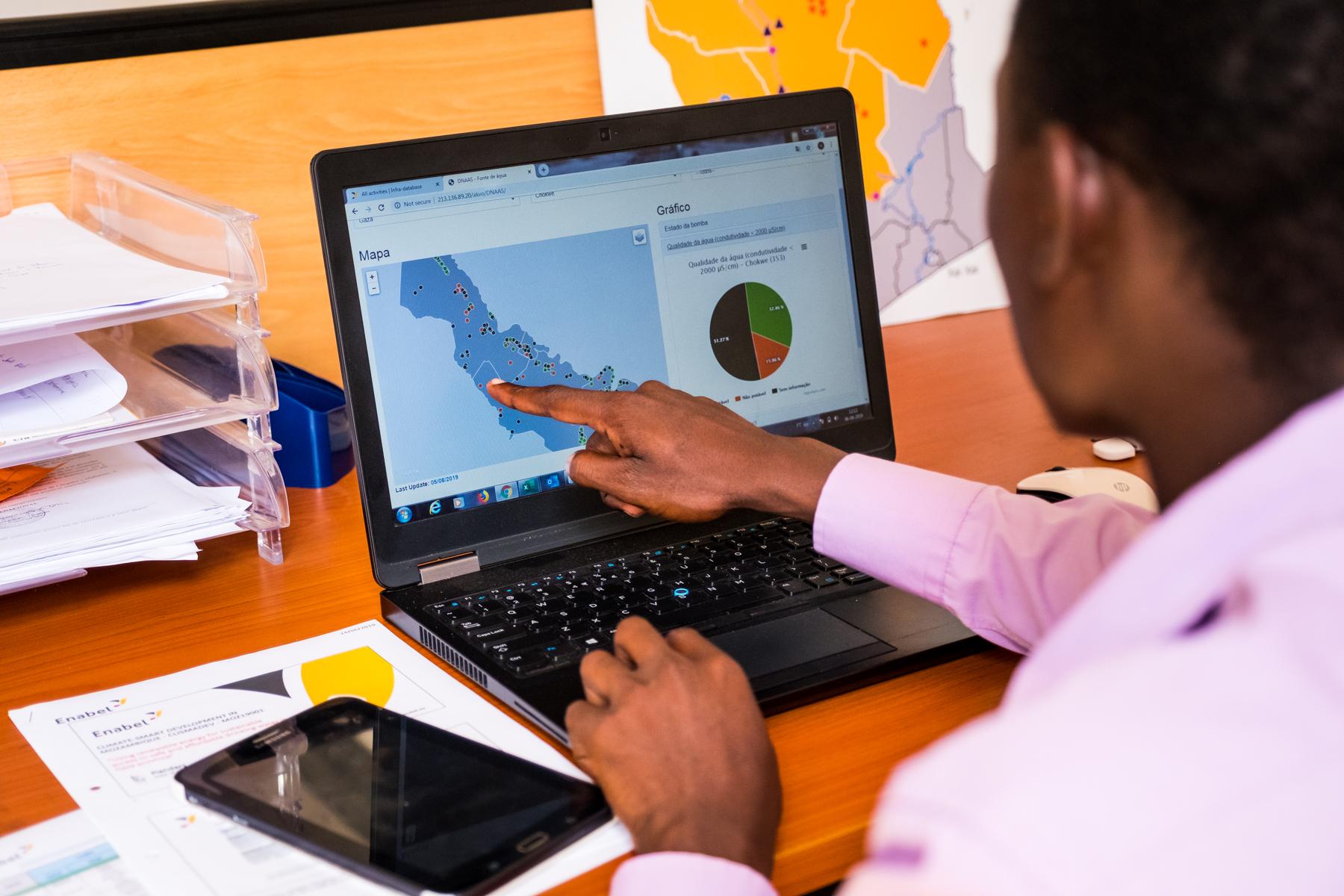In Mozambique, Enabel’s extension of its Study and Expertise Fund allows to mobilise expertise in the fight against climate change
By: Jesse Waterschoot and Akila
Munir
Enabel’s Study and Expertise Fund
in Mozambique is in place since 2014. The aim of this project is to support
sectors through studies, consultancies and providing technical expertise in priority
areas identified for the cooperation between Belgium and Mozambique. This
includes climate change related themes such as (renewable) energy, water management,
agriculture, as well as the health sector and gender.
With a budget of 750,000 euros,
the fund supported consultancies and expertise requests from the line ministries.
The results and insights of studies provided by the fund have impacted recent
governmental policy changes, such as the strategy for
fighting gender-based violence and the water strategy for rural areas.
While the
fund has continuously received requests, budget constraints limited the number
of commitments possible. Due to its relevance and significance in the Enabel
portfolio in Mozambique, in December 2020, an addendum to this project was
signed with an additional budget of 1,25 million euro and extension up to 2023.
This allows the mobilisation of several key studies in Enabel Mozambique’s
priority areas going forward. Additionally, part of these funds will be
directed to support specialised technical assistance, namely a Climate Finance
Advisor from the National Determined Contribution (NDC) Partnership to assist
Mozambique to reach its commitment in the Paris 2015 Climate Change agreement.
Combatting global carbon emission
Enabel developed strong expertise
and institutional partnerships with technical ministries in energy and water projects,
closely related to climate change mitigation and adaptation strategies.
Mozambique is extremely vulnerable to climate change due to its long-coast line
and dependency on the agricultural sector. Consequently, the country suffered
under the cyclones and droughts of the past years. Combatting global carbon
emission and joining multilateral climate initiatives is therefore crucial for
Mozambique.
One of the most important recent multilateral
initiatives on climate change is the 2015 Paris Agreement, that aims to keep
the global average of temperature increase below 2°C. Countries that ratified
this agreement committed to limit global warming and support sustainable
development initiatives.
In light of this, all countries will
provide a national strategy to cut their carbon emission in their national
determined contributions (NDC). Of course, not all countries have equal access
to the expertise and knowledge to reach this goal. To tackle this issue and promote
multilateral climate cooperation, the NDC Partnership was founded, which
ensures that countries receive assistance to achieve ambitious climate targets.
Countries can request support for technical assistance or financial aid to the
NDC secretary, that subsequently reaches out to other member states and requests
them to assist.
Mozambique’s climate ambitions
Mozambique submitted an ambitious
mitigation commitment plan to reduce 76.5 MtCO²e from 2020 to 2030, and in 2018
it launched a comprehensive partnership plan for climate action that includes
11 sectors. To succeed, the government identified the need for an Economic Planning
and Coordination Advisor and a Climate Finance Advisor, so the Ministry of
Economy and Finance decided to request assistance for those two experts to the
NDC secretariat. While the Economic Planning and Coordination Advisor is being
financed by the World Bank, the NDC secretariat reached out to Belgium, a
member since June 2017, for funding the second advisor, because of Belgium’s
active engagement in climate change across the globe, specifically with an
ongoing bilateral cooperation in Mozambique.
Due to the noteworthy coordination
between the different Belgian actors, including the FPS Public Health, Food
Safety and Environment (focal point), FPS Foreign Affairs (focal point), and
the Belgian development agency, the necessary support was secured via Enabel
Mozambique’s Study and Expertise Fund. Truly a #TeamBelgium approach in
actively supporting initiatives for climate action.
In this way, Enabel was able to commit
the necessary funds for the Climate Finance Advisor and helps contributing to
Mozambique’s NDC engagements. The Enabel funded Climate Finance Advisor will
work across line ministries and mobilise development partners to identify and
develop projects and proposals to access resources from national and
international sources to assist Mozambique in achieving its NDC commitments.
The addendum of the Study and
Expertise Fund will be a useful tool between the Belgo-Mozambican cooperation
to continue to contribute to the promotion of expertise and knowledge transfer,
national and sector strategy plans and sustainable development goals.
Dernières actualité de ce projet
Pas d'actualité

